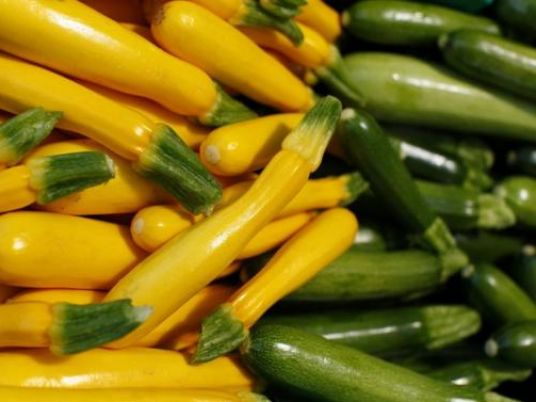
Growing up among rows of purple haze carrots, delicate Mara des Bois strawberries and corn sweet enough to eat raw, Makoto Chino might have been one of the best-fed kids in America.
He would see celebrated chefs like Julia Child and Alice Waters visiting his family's Southern California farm and learning from his father Tom Chino about the painstaking attention to quality and experimentation. The chefs would sign the kitchen wall in homage to the work of the Japanese-American family.
There was never a guarantee that Makoto, Tom's only child, would carry on with the farm. When asked about his son's plans, Tom would utter the Japanese phrase to convey resignation: "shoganai" or "it can't be helped."
"His second favorite saying is 'the protruding nail gets hammered down,'" Makoto, now 25, said with a laugh, a humorous acknowledgement that his father may have convinced him to take up the mantle of what some regard as the nation's finest vegetable and fruit farm.
"I just feel like there is a great gravity towards the farm," added Makoto, who is about to graduate from law school but has no intention of practicing law.
The gravitational pull of Chino Farm is legendary. Since they don't ship, everyone – whether a top chef or a traveling foodie or a local resident – comes to the farm stand, simply called "Vegetable Shop," on a dusty corner of this affluent San Diego County town, hemmed in by sprawling housing estates.
On a hot Sunday in November, Sean Brock, one of the most acclaimed chefs in America today for his revival of Southern cooking, stopped at Chino Farm while on his cookbook tour.
"I haven't seen produce this beautiful anywhere else," said the 36-year-old Brock, whose love of vegetables is patent in the colorful tattoo that covers his entire arm.
"You see these beautiful varieties of plants grown in beautiful soil by people who care," he added. "That is what needs to happen all over the country."
"Never been easy"
Tom Chino, the youngest of nine children, is a spry 65-year-old with no plans to retire. His father, he says, was "farming actively in the field until he was 90" and he will likely do the same.
Long before farmers' markets and heirloom vegetables popped up across the country, Tom Chino's parents bought the 45-acre (18.2-hectare) farm after World War Two and forged their independence from wholesalers and supermarkets, setting their prices and cultivating a diverse offering of crops.
"It is sort of like gardening rather than the American vision of farming," Tom said, adding that "you have to be able to handle lots of different crops."
At dawn, with customers' orders in hand, Tom and his workers, who can vary from six to 18 according to the season, set out for a methodical morning harvest of crops.
"You can tell they were grown, picked, washed and displayed with care," said Brock.
Tom, who worked as a cancer researcher before taking up farming full-time, is always looking for new seeds and varieties to offer to customers, like purple sprouting broccoli or yu choi greens.
"Every single day, my dad is researching more, wanting more, on the computer, listening to podcasts," said Makoto. "It is never enough."
Tom does worry Makoto won't have enough time to learn everything he needs to know about all the specific crops, but he doesn't want to add more pressure on his son.
"I don't want to force anything on him or any of the other children that might be involved," Tom said.
Tom is sensitive to the burden facing Makoto, who does not have the siblings to support him like he did when he took over the farm. There are two cousins who might join Makoto some day, but one is starting college and the other high school.
"It is not going to be easy for him, but it has never been easy for any of us," said Tom.
For Makoto, bringing in people outside the family to help run the farm is something he'd rather not contemplate.
"It probably has to be the reality, but I can't imagine that," he said.
